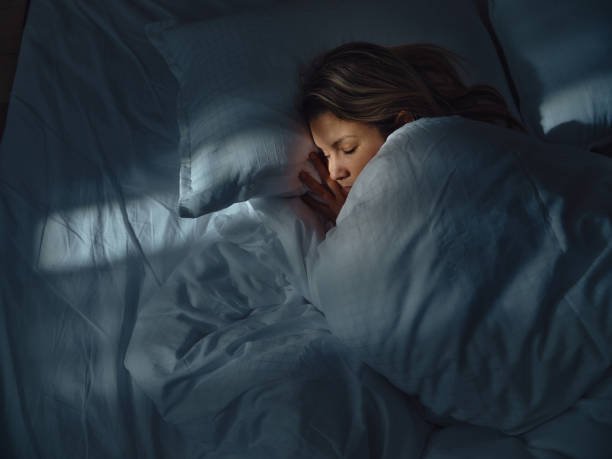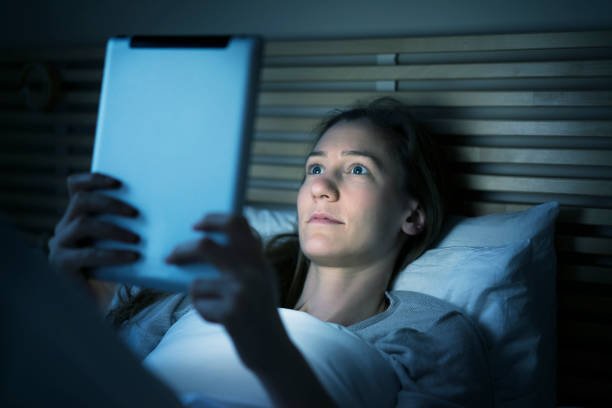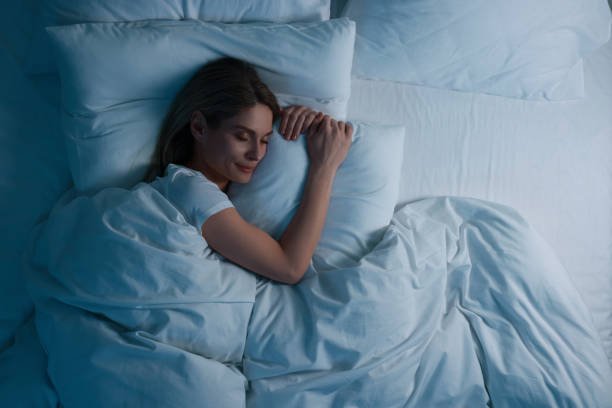Tossing and turning at night? You’re not alone. Millions of people struggle to get quality sleep, whether falling asleep, staying asleep, or waking up feeling completely drained. While the occasional restless night happens, poor sleep over time can disrupt everything from your mood to your hormones.
Think of sleep hygiene like your bedtime lifestyle. It’s about building better habits and creating a nighttime routine that actually supports quality rest. With help from medical experts and recent studies, here are five research-backed tips that can improve your sleep hygiene and overall well-being.
1. Keep a Consistent Sleep Schedule (Yes, Even on Weekends)
Your body operates on a circadian rhythm, a natural, internal process that regulates the sleep-wake cycle and repeats roughly every 24 hours. Disruptions to this rhythm, such as irregular sleep times, can lead to sleep disturbances. Studies show that irregular sleep times are linked to everything from poor focus to increased health risks. In fact, a 2023 study found that people with inconsistent sleep schedules had a higher chance of heart issues and metabolic problems.

Aim to go to bed and wake up at the same time every day (even on weekends). It may take a week or two to adjust, but your body will start to get sleepy naturally at the right time. You’ll likely notice more restful sleep and easier mornings, too.
2. Create a Sleep-Conducive Environment
If your sleep environment isn’t working for you, it’s time for a refresh. Light, sound, temperature, and even your mattress can affect how well you sleep. The Harvard Health publication emphasizes that a cool, dark, and quiet environment significantly improves sleep quality. Your brain takes cues from your environment, so your bedroom should be sending the message: “Relax. It’s time to sleep.
What to do:
- Keep your room cool (around 60–67°F or 15–19°C is ideal).
- Use blackout curtains to block streetlights or early sunrises.
- Try a white noise machine or fan to mask outside sounds.
- Invest in a good-quality mattress and pillow that support your body.
These changes might seem small, but they can make a huge difference in how rested you feel.
3. Limit Exposure to Screens Before Bedtime
We all love scrolling TikTok, checking emails, or watching one more episode before bed, but screens can sabotage your sleep. The blue light from phones, tablets, and TVs tells your brain it’s still daytime, even when it’s clearly not. The Sleep Foundation notes that exposure to blue light in the evening can delay the release of melatonin, the hormone that tells your body it’s time to sleep.

Establish a “digital curfew” by turning off electronic devices at least 30 minutes before bedtime. Instead, engage in relaxing activities such as reading a book, meditating, or taking a warm bath to signal to your body that it’s time to wind down.
4. Rethink What You Eat and Drink at Night
Late-night snacks and evening coffee runs might be cozy, but they can seriously mess with your sleep. Caffeine and alcohol are common culprits, and eating heavy meals close to bedtime can cause indigestion and discomfort. The University Health Center advises avoiding caffeine after 2 p.m. and skipping alcohol within a few hours of bedtime. While alcohol might help you fall asleep faster, it actually disrupts your sleep cycles and reduces sleep quality.
If you’re a little hungry at night, go for something light and sleep-supportive, such as foods rich in tryptophan, such as bananas, handful of nuts or seeds, or non-caffeinated herbal tea (like chamomile or peppermint) can promote sleep. Also, stay hydrated throughout the day but reduce fluid intake in the evening to minimize nighttime awakenings.
5. Relax Your Body and Mind Before Bed
One of the biggest enemies of sleep is a racing mind. Stress and anxiety can make it hard to relax, even if you’re physically tired. That’s why winding down is just as important as when you go to bed. Many sleep specialists recommend CBT-I (Cognitive Behavioral Therapy for Insomnia) and relaxation practices like meditation, breathing exercises, or gentle stretching to reduce pre-bed stress. These tools have been proven to improve sleep, even in people with chronic insomnia.

What to do:
- Do a 10-minute guided meditation. There are plenty on YouTube or apps like Calm and Insight Timer.
- Try the box breathing technique: Inhale for 4 seconds, hold for 4, exhale for 4, hold for 4, and repeat.
- Write down 3 things you’re grateful for to shift your mindset away from stress.
6. Understanding the Importance of Sleep Hygiene
Sleep hygiene isn’t about being perfect, it’s about building small, sustainable habits that support better rest. When you improve your sleep, almost everything else in your life gets easier: mood, focus, energy, even your immune system.
Key Components of Good Sleep Hygiene:
- Regular Sleep Schedule: Going to bed and waking up at the same time daily.p
- Comfortable Sleep Environment: A quiet, dark, and cool room
- Pre-Sleep Routine: Engaging in relaxing activities before bedtime.
- Mindful Consumption: Avoiding caffeine, alcohol, and heavy meals close to bedtime.
- Limiting Naps: Keeping daytime naps short (20-30 minutes) and not too late in the day.
By adhering to these practices, you can significantly improve your sleep quality and overall health.
Conclusion: Prioritize Your Sleep for Optimal Health
Quality sleep is not a luxury, it’s a necessity. Implementing these expert-backed sleep hygiene tips can lead to better sleep quality, improved mood, enhanced cognitive function, and overall well-being.
Better sleep starts with better habits, but it doesn’t stop there. At Kairos Health and Wellness, we believe in getting to the root of what’s really disrupting your rest. From hormone imbalances and adrenal fatigue to chronic stress and lifestyle triggers, our functional and holistic approach looks at the full picture of your health, not just isolated symptoms.
If you’re struggling with sleep issues, our provider, Lola, a Board-Certified Nurse Practitioner with advanced training in hormone optimization and functional medicine, is here to help. Lola specializes in identifying and addressing the root causes of sleep disturbances, offering personalized, holistic care to restore your natural sleep patterns. Contact us or book your appointment with Lola today.
Frequently Asked Questions (FAQs)
Q1. What exactly is sleep hygiene?
Sleep hygiene is a set of healthy sleep habits, like regular bedtimes, screen limits, and relaxing routines, that help you fall asleep more easily and stay asleep longer.
Q2. Why do I still feel tired after 8 hours of sleep?
Quality matters as much as quantity. Disrupted sleep, stress, or even hormone issues can affect how refreshed you feel, even after a full night’s rest.
Q3. Is it bad to nap during the day?
Short naps (20–30 minutes) can be helpful if you’re sleep-deprived, but long or late-day naps can make it harder to fall asleep at night.
Q4.What makes your approach different from conventional sleep solutions?
Unlike quick-fix prescriptions or surface-level advice, our functional and holistic model addresses the underlying causes of poor sleep, including gut health, cortisol imbalance, and inflammation.
Q5. Can food really affect my sleep?
Absolutely. Caffeine, alcohol, and heavy meals can disrupt sleep. Opting for lighter, sleep-supportive snacks and drinking less close to bedtime can help.
Q6. How can Kairos Health and Wellness help with sleep issues?
We offer a root-cause approach to sleep problems. Whether it’s hormone-related, stress-driven, or linked to nutrient imbalances, we dig deep to uncover what’s really going on, and help you heal naturally.


